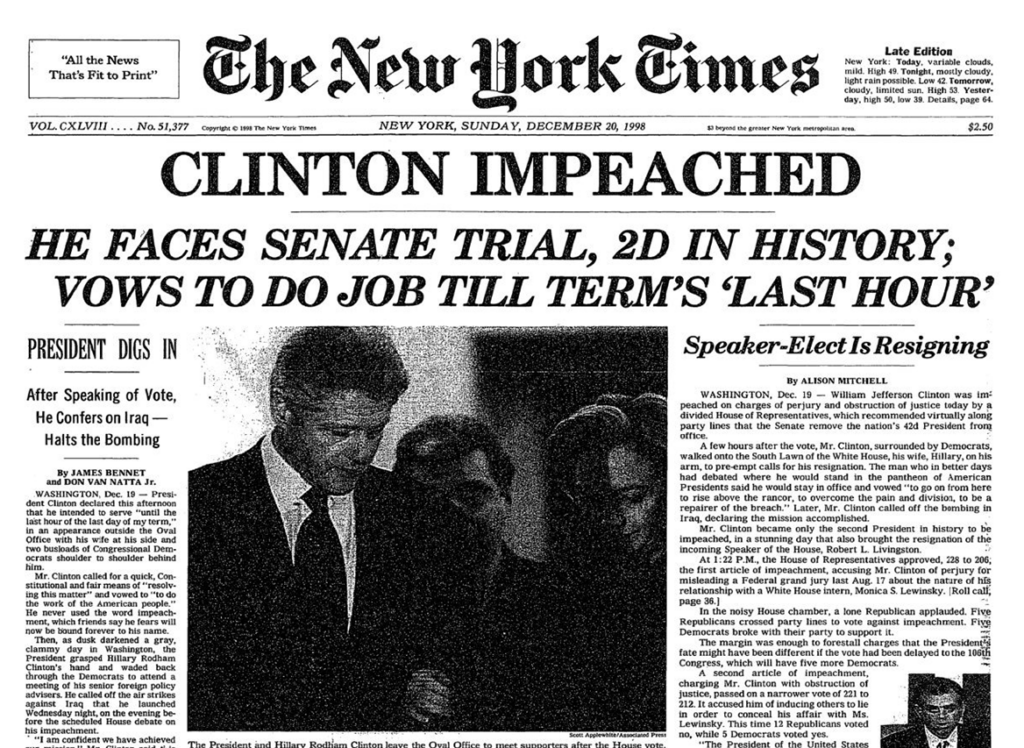One leader who possesses such a unique quality was Bill Clinton, the 42nd President of the United States. During his time in office, people couldn’t help but notice Bill Clinton Charisma in his leadership. According to Psychology Today, charisma makes us think of powerful business leaders, rock stars, and politicians. Its real strength lies in how it affects everyone else. Being able to move and inspire others is a valuable asset for leaders in achieving shared goals.
In this article, we’ll explore what charisma means in leadership and why it’s essential, and then we’ll take a closer look at how Bill Clinton’s charisma shaped his political journey.

Why was Bill Clinton considered the most charismatic President?
High Approval Rating
During his time as U.S. President, Bill Clinton’s approval ratings ranged from 36% to a peak of 73%, with an impressive 65% upon leaving office. His charisma was evident in his exceptional memory for names and skillful use of self-effacing humor, which made people feel valued and endeared him to the public.
A study suggested he was predominantly charismatic
During the 1996 U.S. presidential election, a study found that Bill Clinton was predominantly charismatic/extraverted, reinforcing his image as a charismatic leader.
A study showed Bill Clinton stood out with a remarkable charisma rating
A study from Illinois State University found that among recent U.S. presidents – George Bush Sr., Bill Clinton, and George W. Bush Jr. – Bill Clinton stood out with a remarkable charisma rating of 4.90. This distinguished him as a captivating and memorable leader among his contemporaries.
What are the Charismatic Traits of Bill Clinton?
These charismatic traits played a significant role in shaping Bill Clinton’s leadership style and contributed to his reputation as one of the most charismatic presidents in American history.
Natural charm
Clinton possessed a captivating and likable personality, making him approachable and relatable to people from all walks of life.
Exceptional communication
His eloquence and wit as a communicator allowed him to connect with audiences, leaving a lasting impact with his speeches and conversations.
Empathy and emotional intelligence
Clinton’s ability to understand and connect with people’s emotions helped him address their concerns effectively.
Resilience in adversity
Even during challenging times, he maintained his charisma, showing strength and optimism in the face of difficulties.
Youthful appeal
Clinton’s modern and forward-thinking approach resonated with younger generations, enhancing his charismatic appeal.
Global influence
His charm extended beyond borders, enabling him to build strong relationships and enhance diplomatic efforts on the international stage.
What is the impact of Bill Clinton’s Charisma on his position?
According to a 2016 study, trust is crucial for charismatic leaders like Bill Clinton. Charismatic leaders are more likely to be trusted by their employees, leading to an increased willingness to support colleagues, show concern for the team’s future, and demonstrate commitment beyond their contractual obligations.
Bill Clinton’s charisma had both positive and negative impacts on his presidency. Here are the positive and negative impact of his charisma on his position:
Positive Impact of Charisma on Bill Clinton:
High public approval
Bill Clinton’s charisma led to high public approval ratings, enhancing his likability and popularity.
Effective communication
His charismatic communication style helped him rally support for policies and initiatives.
Strong leadership
Clinton’s charisma inspired confidence in his leadership during challenging times.
Global diplomacy
His charm facilitated strong relationships with world leaders, aiding diplomatic efforts.
Negative Impact of Charisma on Bill Clinton:
Trust issues
Despite charisma, his involvement in scandals damaged public trust in his integrity.
Distractions from governance
Charisma-driven controversies diverted attention from important policy matters.
Political opposition
Some critics saw charisma as prioritizing popularity over long-term policy decisions.
Impeachment proceedings
Though approval remained high, charisma couldn’t fully shield him from the impeachment’s impact.
What are the criticisms and challenges of Bill Clinton’s Charismatic Leadership?
Despite having the highest approval rating, Bill Clinton’s charismatic leadership has not been immune to criticism. Throughout his term, he faced numerous controversies and challenges that have been extensively covered in newspapers and blog posts. Here are some of the challenges and criticisms he encountered.
- Ethical concerns: Scandals damaged Clinton’s credibility.
- Manipulative eye contact: Critics questioned the authenticity of his charisma.
- “Reality Distortion Field”: Charm over substance in decision-making.
- Overwhelming presence: Charisma overshadowing policy discussions.
- Short-term focus: Prioritizing popularity over lasting policies.
- Political opposition: Charismatic style lacking substance.
- International relations: Charm helped build relationships but posed challenges in complex issues.
- Overshadowing policy achievements: Charisma and scandals eclipsing accomplishments.
Lessons from Bill Clinton’s Charismatic Leadership
- Effective Communication: Charisma builds trust through powerful communication and eye contact.
- Personal Presence– Genuine attention makes people feel valued and relatable.
- Substance Matters: Balancing charm with impactful policies ensures lasting results.
- Resilience: Handling scandals requires skill in managing public perception.
- Building Relationships: Charisma helps forge strong diplomatic ties.
- Learning from Mistakes: Adapting leadership based on controversies leads to growth.
- Long-Term Focus: Balancing popularity with lasting policy impact is vital.
- Ethical Integrity: Transparency maintains credibility and trust.
- Inclusivity: Charisma fosters unity, bridging divisions.
- Accountability: Embracing scrutiny builds trust with the people.
Bill Clinton’s scandals
Despite being a charismatic leader, Bill Clinton faced several notable scandals:
The Monica Lewinsky Affair
In 1995, Monica Lewinsky’s White House internship led to a sexual relationship with President Bill Clinton. Secret recordings by Linda Tripp exposed the affair in 1998, triggering a high-profile scandal and investigations. The incident left a lasting impact on U.S. politics.
Whitewater Controversy
The Whitewater Controversy is a controversial real estate deal involving the Clintons in the 1990s into alleged improper financial dealings. Cleared of wrongdoing, but associates faced felony convictions.
Travelgate
1993 Travelgate is a White House controversy with accusations of improper firing of White House employees.
Impeachment Proceedings
Impeached by the House of Representatives over the Lewinsky scandal, but acquitted by the Senate.

Conclusion
Bill Clinton’s charismatic leadership left a significant impact on politics and leadership. His effective communication, resilience, and building of relationships were notable traits. However, his charisma faced criticism due to ethical concerns and distractions from governance. Learning from his successes and mistakes can guide future leaders to make a positive impact on society.
Sources
- Psychology Today. Charisma
- Wikipedia. Public image of Bill Clinton
- ScienceDirect. Presidential charismatic leadership: Exploring the rhetoric of social change
- BBC Worklife. The art and science of being charismatic
- Tim Ferriss Blog. How It Works: Clinton’s “Reality Distortion Field” Charisma
- CNN. A Chronology: Key Moments In The Clinton-Lewinsky Saga
- Investopedia. The Whitewater Scandal: What You Should Know
- Wikipedia. White House travel office controversy





